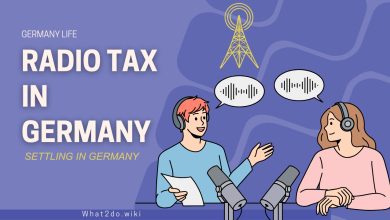Looking to celebrate some German holidays in 2025 and 2026? Look no further! Whether you’re interested in traditional celebrations like Christmas, Easter, or exploring new festivities, we’ve got you covered. Knowing the dates of Germany’s public holidays and key events is essential whether you’re residing in the country or just visiting, as businesses and government offices may be closed or operate on reduced hours on these days.
Our guide compiles a comprehensive list of Germany’s public holidays and other significant dates, ensuring you don’t miss anything crucial.
Types of German Holidays
There are three main categories of German holidays, each described below:
German Public Holidays
New Year’s Day, German Unity Day, and Christmas Day are just a few of the nine public holidays observed throughout Germany’s sixteen federal states.
German Regional Holidays
While the federal government can proclaim national holidays, individual states have the authority to determine public holidays within their jurisdictions. Some federal states celebrate additional holidays not recognized elsewhere. Bavaria, for example, has 13 public holidays per year, the highest number among all federal states. Other states observe between 10 and 12 holidays annually.
Other Holidays in Germany
In addition to officially recognized public holidays, there are various unofficial holidays, such as Saint Nicholas Day (Nikolaus) on December 6, Carnival Monday (Rosenmontag), and Christmas Eve. These holidays may not be official days off but are culturally significant and widely observed throughout Germany.
School Holidays in Germany (Updated for 2025-2026)
German schools enjoy five to six vacation periods each year, including breaks for Easter, summer, Christmas, autumn, and spring. These school holidays vary by federal state. It’s important to note that in 2025 and 2026, school holidays will continue to differ depending on the state, typically spanning multiple weeks to help reduce congestion in travel during peak vacation periods.
School holidays play an important role in planning travel and accommodation, as high-demand periods can affect availability and pricing.
Public Holidays in Germany Vary by State
Did you know that Bavaria, Baden-Württemberg, and Saarland have the highest number of public holidays, with twelve each? Public holidays in Germany are not uniformly observed across the nation; instead, each federal state decides which holidays are official.
For instance, Bavaria, Baden-Württemberg, and Saarland have the most public holidays, while states like Hamburg and Bremen have fewer official holidays. This regulation explains why someone in Berlin (state: Berlin) might have eleven public holidays, whereas someone in Frankfurt am Main (state: Hessen) only has ten.
Here’s an overview of the number of public holidays in each federal state (as of 2025-2026):
- Bavaria (12) – Bavaria celebrates additional traditional festivals such as St. George’s Day (Georgiritt) and various beer festivals, making it culturally rich and lively throughout the year.
- Saarland (12) – Saarland celebrates additional regional traditions such as the ‘Maxfest’ and ‘St. Johanner Markt,’ which are popular community gatherings filled with local food, music, and entertainment.
- Baden-Württemberg (12) – Baden-Württemberg is known for its unique celebrations like Fasnet (Swabian-Alemannic Carnival), which features elaborate parades, costumes, and traditional masked performances, highlighting the cultural heritage of the region.
- Saxony (11) – Saxony is home to traditional events like the Striezelmarkt, one of the oldest Christmas markets in Germany, which attracts visitors from all over with its festive atmosphere and unique crafts.
- Niedersachsen (11) – Niedersachsen hosts unique events like the Kramermarkt in Oldenburg, a major fair featuring rides, food stalls, and entertainment, reflecting the rich cultural heritage of the region.
- Saxony-Anhalt (11) – Saxony-Anhalt is famous for its historical celebrations like the Handel Festival in Halle, which honors the composer George Frideric Handel, attracting music enthusiasts from around the world.
- Rhineland-Palatinate (11) – Rhineland-Palatinate is known for its wine festivals, particularly the Wurstmarkt in Bad Dürkheim, one of the largest wine festivals in the world, which showcases the region’s rich winemaking heritage.
- North Rhine-Westphalia (11) – North Rhine-Westphalia hosts a variety of cultural events, including the Cologne Carnival (Kölner Karneval), one of the largest and most famous carnivals in Europe, attracting millions of visitors annually with its vibrant parades and festivities.
- Thuringia (11) – Thuringia is famous for its cultural events like the Bach Festival in Arnstadt, celebrating the legacy of Johann Sebastian Bach with concerts and performances that attract music lovers from all over the world.
- Berlin (11) – Berlin is well known for its vibrant cultural events like the Berlinale (Berlin International Film Festival), which brings together film enthusiasts and creators from all over the world, making it an important cultural highlight of the year.
- Mecklenburg-Western Pomerania (10) – Mecklenburg-Western Pomerania hosts traditional events like the Hanse Sail in Rostock, one of the largest maritime festivals in Europe, which draws millions of visitors and features tall ships, cultural performances, and local cuisine.
- Hesse (10) – Hesse is known for events such as the Frankfurt Book Fair (Frankfurter Buchmesse), the world’s largest trade fair for books, which attracts publishers, authors, and literature enthusiasts from across the globe.
- Schleswig-Holstein (10) – Schleswig-Holstein is known for its unique maritime heritage, hosting events like the Kiel Week (Kieler Woche), which is the largest sailing event in the world, featuring boat races, concerts, and festivities.
- Brandenburg (10) – Brandenburg is known for the Brandenburg Gate Festival, a major cultural event celebrating history and unity, with music, fireworks, and a festive atmosphere in Berlin and surrounding areas.
- Bremen (10) – Bremen is well-known for the Freimarkt, one of Germany’s oldest fairs, offering exciting rides, local delicacies, and cultural performances that make it a beloved event for both locals and visitors.
- Hamburg (10) – Hamburg is well-known for the Hamburger Dom, one of the largest funfairs in Northern Germany, held three times a year, offering thrilling rides, local delicacies, and entertainment for all ages.
German Holidays in Germany for 2025 & 2026
Below is a comprehensive table of German public holidays for the years 2025 and 2026:
| German Holidays (Urlaub) | 2025 Dates | 2026 Dates | Federal State |
|---|---|---|---|
| New Year’s Day (Neujahr) | 01-Jan – Wed | 01-Jan – Thu | All |
| Epiphany (Heilige Drei Könige) | 06-Jan – Mon | 06-Jan – Tue | Baden-Württemberg, Bavaria, Saxony-Anhalt |
| Women’s Day (Frauentag) | 08-Mar – Sat | 08-Mar – Sun | Berlin |
| Good Friday (Karfreitag) | 18-Apr – Fri | 03-Apr – Fri | All |
| Easter Sunday (Ostersonntag) | 20-Apr – Sun | 05-Apr – Sun | Brandenburg |
| Easter Monday (Ostermontag) | 21-Apr – Mon | 06-Apr – Mon | All |
| Labour Day (Tag der Arbeit) | 01-May – Thu | 01-May – Fri | All |
| Ascension Day (Christi Himmelfahrt) | 29-May – Thu | 14-May – Thu | All |
| Whitsunday (Pfingstsonntag) | 08-Jun – Sun | 24-May – Sun | Brandenburg |
| Whit Monday (Pfingstmontag) | 09-Jun – Mon | 25-May – Mon | All |
| Corpus Christi (Fronleichnam) | 19-Jun – Thu | 04-Jun – Thu | Baden-Württemberg, Bavaria, Hesse, Saarland, Rhineland-Palatinate, North Rhine-Westphalia |
| Assumption Day (Mariä Himmelfahrt) | 15-Aug – Fri | 15-Aug – Sat | Bavaria, Saarland |
| World Children’s Day (Weltkindertag) | 20-Sep – Sat | 20-Sep – Sun | Thuringia |
| German Unity Day (Tag der Deutschen Einheit) | 03-Oct – Fri | 03-Oct – Sat | All |
| Reformation Day (Reformationstag) | 31-Oct – Fri | 31-Oct – Sat | Brandenburg, Bremen, Hamburg, Mecklenburg-Western Pomerania, Lower Saxony, Saxony, Saxony-Anhalt, Schleswig-Holstein, Thuringia |
| All Saints’ Day (Allerheiligen) | 01-Nov – Sat | 01-Nov – Sun | Baden-Württemberg, Bavaria, North Rhine-Westphalia, Rhineland-Palatinate, Saarland |
| Day of Repentance & Prayer (Buß- und Bettag) | 19-Nov – Wed | 18-Nov – Wed | Saxony |
| Christmas Day (Erster Weihnachtstag) | 25-Dec – Thu | 25-Dec – Fri | All |
| Boxing Day (Zweiter Weihnachtstag) | 26-Dec – Fri | 26-Dec – Sat | All |
Important Information for 2025 & 2026
- School Holidays Update: School holidays in Germany vary by federal state and typically involve staggered schedules to reduce travel congestion. Make sure to check with your local education authority for the specific dates applicable to your state. Additionally, these staggered holidays are designed to distribute tourism demand more evenly, which helps reduce overcrowding in popular destinations and ensures better availability of accommodations and travel services.
- Additional Observations: Some holidays, like Women’s Day on March 8th in Berlin, are not celebrated nationally and may cause certain services to be unavailable locally. Be aware of the specific public holiday calendar for the federal state you reside in or plan to visit.
- Shopping and Business Hours: During public holidays, most shops, offices, and banks are closed, with exceptions often limited to some convenience stores or businesses operating at major transportation hubs.
- Travel Tips: During public holidays and school vacation periods, popular travel destinations and accommodation options can fill up quickly. It is advisable to book travel arrangements well in advance, particularly if you are traveling during major holidays like Christmas, Easter, or summer school vacations.
- Holiday Traditions: Many German holidays are steeped in tradition, such as Christmas markets during the Advent season, colorful parades during Carnival (Fasching or Karneval), and Easter egg hunts. Participating in these local traditions can provide a deeper understanding of German culture and enhance your experience.
What is the Most Important Holiday in Germany?
It’s challenging to determine which German holiday is the most important, as this often depends on personal or regional significance. Religious festivals like Christmas and Easter are highly important for many, particularly among Catholics and Protestants. Reformation Day holds particular significance for Protestants, while German Unity Day is celebrated across the country for its political and cultural importance. For most, the holidays in Germany are memorable opportunities to connect with family, enjoy time off work, and participate in unique local customs and celebrations.




